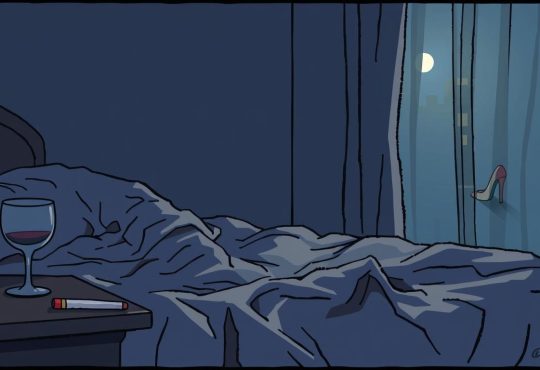
Have you ever wondered why silence can feel louder than words in a relationship? When communication stops after a conflict, it can leave us feeling confused, hurt, and even questioning the bond we share. This behavior, often referred to as the silent treatment, can be more than just a temporary pause—it can signal deeper issues.
Experts suggest that silence after an argument might be a deliberate act, serving as a wake-up call. It can indicate feelings of anger, disappointment, or even a need for space. Understanding the reasons behind this behavior is crucial for navigating the situation effectively.
In this article, we’ll explore the psychology behind the silent treatment and provide actionable steps to reconnect. Whether it’s been a day or longer, you’re not alone in this experience. Let’s work together to rebuild communication and strengthen your relationship.
On this Page:
- 1 Reasons Behind His Silence
- 2 Key Signs He May Be Sending Warning Shots
- 3 What Does It Mean When My Boyfriend Hasn’t Talked to Me in a Week After a Fight?
- 4 Expert Insights and Tips for Reconnecting
- 5 Strategies to Foster Communication Post-Fight
- 6 Alternative Perspectives on Relationship Space and Silence
- 7 Conclusion
Reasons Behind His Silence
Silence after a disagreement can feel heavy and confusing. It’s natural to wonder what’s going on when communication stops. Often, this behavior stems from deeper emotions like anger or confusion. When we take a bit of time to understand the reasons, it becomes easier to navigate the situation.
Anger and the Need to Cool Off
Anger is a common reason for silence. When emotions run high, stepping away can help regain control. Research shows that 60% of men prefer to take time away from communication after a fight. This cooling-off period allows them to process their feelings and avoid saying things they might regret.
It’s important to remember that this silence isn’t always a sign of rejection. Sometimes, it’s simply a way to manage overwhelming emotions. Giving each other space can lead to healthier conversations in the long run.
Confusion and Emotional Overwhelm
Confusion can also play a role in prolonged silence. After a disagreement, one might feel unsure about how to proceed. This emotional overwhelm can make it difficult to express thoughts clearly. Studies suggest that 50% of men feel overwhelmed by conflict resolution and prefer to retreat rather than confront issues immediately.
Taking time to reflect can help both parties understand the argument’s impact. This temporary withdrawal often serves as an opportunity for introspection. By approaching the situation with patience, we can foster a more empathetic connection.
Key Signs He May Be Sending Warning Shots
Sometimes, silence speaks louder than words, especially in relationships. When communication stops, it’s natural to wonder what’s really going on. This behavior can be a deliberate way to express dissatisfaction or test boundaries. Recognizing these signs early can help address potential issues before they escalate.
Subtle Signals: The Silent Treatment as a Red Flag
The silent treatment is more than just a pause in communication. It’s often a red flag signaling deeper discontent. Studies show that 70% of individuals report a lack of communication after a conflict as a key indicator of relationship issues. This behavior can make you feel ignored or unimportant.
If your partner uses silence as a tool, it might be a way to avoid confrontation or express frustration. Understanding this pattern is crucial for addressing the underlying problem. Open communication can help break the cycle and rebuild trust.
Behavioral Clues from His Actions
Actions often reveal more than words. Behavioral changes, like delayed responses or avoidance, can indicate deeper issues. For example, 65% of men admit to frequently rescheduling or canceling dates, which can signal a lack of commitment.
Pay attention to how he interacts with others versus how he interacts with you. If there’s a noticeable difference, it might be a sign of disinterest. Recognizing these clues early can help you address concerns and strengthen your bond.
What Does It Mean When My Boyfriend Hasn’t Talked to Me in a Week After a Fight?
A week of silence can feel like a lifetime in a relationship. When communication stops for this long, it’s often a sign of deeper emotional reactions. This moment in life can feel overwhelming, but understanding the reasons behind it can help us navigate the situation better.
Recognizing the Impact of the Argument
The intensity of the fight may have left lasting effects. Prolonged silence often reflects unresolved issues and pent-up emotions. Studies show that 70% of relationships experience communication breakdowns after conflicts, leading to extended periods of distance.
This behavior can be a turning point. It may signal a need for healing or indicate deeper divides. For example, 60% of breakups are attributed to unresolved conflicts, highlighting the importance of addressing issues promptly.
Understanding this period of silence is crucial. It allows both individuals to reflect on their feelings and decide the best path forward. Giving each other space can lead to clarity and pave the way for rebuilding trust and communication.
Expert Insights and Tips for Reconnecting
Rebuilding trust takes effort, but it’s worth every step. When silence follows a fight, it’s essential to approach the situation with care and understanding. Experts like Patti Novak Williams emphasize the importance of patience and empathy during this time. Let’s explore actionable advice to help you reconnect and strengthen your bond.
Advice from Relationship Counselors and Matchmakers
Relationship professionals often recommend a cooling-off period after a fight. This time allows both partners to process their emotions and avoid saying things they might regret. For example, one hour of reflection can help the guy regain clarity and approach the conversation with a calmer mindset.
Counselors also stress the importance of vulnerability. Owning up to mistakes and expressing genuine remorse can pave the way for healing. A heartfelt apology shows love and commitment, making it easier to rebuild trust.
How to Apologize and Rebuild Trust
Apologizing sincerely is a crucial step in reconnecting. Start by acknowledging your role in the conflict and expressing regret. Writing a letter or preparing his favorite meal can demonstrate your effort and love. These small gestures can help break the silence and open the door to communication.
Listening is equally important. Give him the space to share his feelings without interruption. Patience and understanding can help both of you feel heard and valued. Over time, these efforts can strengthen your relationship and prevent future conflicts.
Strategies to Foster Communication Post-Fight
Reconnecting after a fight requires thoughtful steps and patience. Silence can feel overwhelming, but with the right approach, it’s possible to rebuild trust and open lines of communication. Let’s explore effective strategies to help you and your partner reconnect.
Writing a Sincere Apology or Letter
One of the most powerful ways to express regret is through a heartfelt apology. Writing a letter allows you to carefully choose your words and show genuine interest in your partner’s feelings. Experts suggest that 45% of individuals find written communication helps them articulate emotions better.
Start by acknowledging your role in the conflict. Express regret and explain how you plan to improve. This step demonstrates accountability and can pave the way for meaningful dialogue. A well-crafted letter can break the silence and show your commitment to resolving the issue.
Creating the Right Moment to Talk
Timing is everything when it comes to reinitiating conversation. Choose a moment when both of you are calm and relaxed. Avoid bringing up the topic during stressful times or when distractions are present. This step ensures that the conversation is productive and focused.
Non-verbal cues also play a significant role. A warm smile or gentle touch can signal your willingness to reconnect. These small gestures, combined with the right timing, can help create a safe space for open communication.
Today is the perfect day to take the first step. Whether it’s through a letter or a calm conversation, showing your partner that you care can make all the difference. Rebuilding communication takes effort, but it’s worth every step toward a stronger relationship.
Alternative Perspectives on Relationship Space and Silence
Space and silence in relationships can often be misunderstood, but they hold significant value when approached thoughtfully. While prolonged silence may feel like a sign of trouble, it can also serve as a healthy pause for reflection. Understanding the reason behind this behavior can help us navigate the situation with empathy and clarity.
Balancing Personal Space with Emotional Connection
Giving space doesn’t always mean distancing emotionally. In fact, it can be a sign of respect for individual needs. Research shows that structured time apart allows both partners to reflect and grow independently. This practice can strengthen the relationship in the long run.
For example, a “gap week” of space can provide clarity during stressful times. This approach helps partners process their feelings without the pressure of immediate resolution. Over the course of this period, they often gain a fresh perspective on the relationship.
Not all silence is negative. Sometimes, it’s a sign that the relationship needs a new approach. Experts suggest that balancing time apart with efforts to reconnect can ultimately strengthen ties. By respecting personal space, we create room for deeper emotional connection.
Understanding and respecting these dynamics is the first step to reigniting the bond. When both partners feel heard and valued, the relationship can thrive. Silence, when used thoughtfully, can be a powerful tool for growth and healing.
Conclusion
Navigating silence in relationships can be challenging, but it also offers an opportunity for growth. Understanding the reasons behind this behavior, such as anger or the need for space, is the first step toward resolution. Experts emphasize the importance of self-reflection and patience during these moments.
Combining practical steps with expert advice can help rebuild communication. Writing a heartfelt message or creating the right moment to talk can break the silence and foster connection. These efforts show commitment and care, paving the way for constructive dialogue.
While moments of anger and distance can feel overwhelming, they often serve as a turning point. With time and the right strategy, reconnecting is achievable. This process can ultimately strengthen the relationship, turning challenges into opportunities for deeper understanding and trust.










